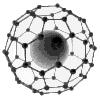
DMT-Nexus member
Posts: 368 Joined: 09-Jun-2011 Last visit: 27-Nov-2020
|
In reviewing this site and the interwebs for a bit, I read found three principal ways to separate Zinc Carbonate from THH after the reduction of hermaline:
1 - Hot ethyl alcohol to dissolve THH (and I don't know the optimum ratio of alcohol to water)
2 - Manske in vinegar water solution with NaCl (I read this take a long time to precipitate, and sometimes doesn't)
3 - Run the whole reduction in ammonia using amonium chloride to precip the THH, preventing the zinc carbonate from precipitating in the first place
Has there been a consensus around the best approach? I plan on running a reduction this week.
Thank you.
|
|
|
|
|

DMT-Nexus member
Posts: 557 Joined: 12-Jul-2012 Last visit: 01-Jan-2021
|
I havent seen any rigorous tests of any of those here, I doubt there is a consensus. Some thoughts tho: 1- The desired avoidance of precipitating zinc is from published chemical literature. Professional chemists like to avoid anything that might slow them down, be inconvenient, or marginally reduce yield. We tend to have different priorities, and often less access to the chems and equipment the researchers have. 2- I think there is a consensus here, or a tentative one. THH doesnt precip in a manske salt precipitation. If used at all a manske would then just serve to remove residual harmine and harmaline from the solution. 3- You wrote it backwards  run the reduction in ammonium chloride solution, and then precip the THH with ammonia. Obviously, if no ammonium chloride is on hand one could a) add hydrochloric acid to ammonia b) add the alkaloids and zinc c) after reaction add more ammonia.
|
|
|

DMT-Nexus member
Posts: 368 Joined: 09-Jun-2011 Last visit: 27-Nov-2020
|
Auxin wrote:3- You wrote it backwards  run the reduction in ammonium chloride solution, and then precip the THH with ammonia. Obviously, if no ammonium chloride is on hand one could a) add hydrochloric acid to ammonia b) add the alkaloids and zinc c) after reaction add more ammonia. Doh! Well, clearly I need to do some more research on the ammonium chloride tek. I am not a real chemist, but I can play one on t.v.  Thank you for the response Auxin. So Manske is out. Alcohol is an option, but the alternate tek seems like the best path, since I think I can get reasonably pure ammonium chloride. I'd be happy to hear other opinions, too. Now to do some more research...
|
|
|

DMT-Nexus member

Posts: 14191 Joined: 19-Feb-2008 Last visit: 22-Nov-2025 Location: Jungle
|
Hey!
Im sorry but I never followed through on these tests, I just made the initial confirmation of the harmaline-to-thh reduction but never tested the different ways to separate excess zinc from the THH.
I think dissolving the THH with dry ethanol and leaving zinc carbonate behind is worth a try, and so is trying the ammonia chloride thing.
Another option would be to attempt using excess sodium hydroxide. The theory says that when excess sodium hydroxide is added, zinc hydroxide becomes sodium zincate, which will be soluble in the solution while THH would be insoluble and precipitate. Then one can just filter and have THH without zinc.
I'm not sure what "excess" would be but I guess you can just run some tests.
Be sure to weigh your product before and after to make sure the amounts you are getting are reasonable and won't have too much excess zinc. Maybe do two different ways to compare? Also maybe save samples to get them tested.
Good luck and let us know!
|
|
|

DMT-Nexus member
Posts: 368 Joined: 09-Jun-2011 Last visit: 27-Nov-2020
|
Enlessness--
No need to appologize for anything-- You have made some of the most significant contributions regarding harmalas on this site. I'm glad to be able to participate in the process.
I will see if I am able to secure the ammonium chloride today. If so, I'll give it a shot. If not, I may try the excessive NaOH, and if that doesn't work, I'll resort to the alcohol.
I'll be sure to weigh the harmalas going into the process and will report results. I have the zinc and will probably run the reaction his week.
|
|
|

DMT-Nexus member
Posts: 368 Joined: 09-Jun-2011 Last visit: 27-Nov-2020
|
Question for the chemists out there---
I will be getting the ammonium carbonate in a couple days. Unfortunately, the "Studies in Harmine" paper is pretty light on details of the conversion tek.
How should I determine the amount of ammonium carb to add to the HCl solution? Solubility in water is near 30g/100ml. Over saturation could just be washed away after I precipitate, but I would rather minimize risk of contaminants.
Also, I don't intend to extract with ethyl acetate, preferring instead the more familiar procedure of a series of washes and an evap dry. Would like to know if that is reasonable, too.
Thanks for your help.
|
|
|

Boundary condition

Posts: 8617 Joined: 30-Aug-2008 Last visit: 24-Dec-2025 Location: square root of minus one
|
Nitegazer wrote:Question for the chemists out there---
I will be getting the ammonium carbonate in a couple days. Unfortunately, the "Studies in Harmine" paper is pretty light on details of the conversion tek.
How should I determine the amount of ammonium carb to add to the HCl solution? Solubility in water is near 30g/100ml. Over saturation could just be washed away after I precipitate, but I would rather minimize risk of contaminants.
Also, I don't intend to extract with ethyl acetate, preferring instead the more familiar procedure of a series of washes and an evap dry. Would like to know if that is reasonable, too.
Thanks for your help. So you're picking up some ammonium bicarbonate from a baking store perhaps? Don't know if the carbonate bit of the equation might complicate matters a little... Just to put it out there: if you mix ammonium sulfate fertilizer with sodium chloride and heat it in a flask fitted with a condenser (preferably an air condenser) ammonium chloride will sublime out and form crystals in the condenser. This may work with the ammonium carbonate. Any luck with your procedures yet? PS harmine won't reduce with zinc, just harmaline “There is a way of manipulating matter and energy so as to produce what modern scientists call 'a field of force'. The field acts on the observer and puts him in a privileged position vis-à-vis the universe. From this position he has access to the realities which are ordinarily hidden from us by time and space, matter and energy. This is what we call the Great Work." ― Jacques Bergier, quoting Fulcanelli
|
|
|

DMT-Nexus member
Posts: 368 Joined: 09-Jun-2011 Last visit: 27-Nov-2020
|
Finally ran the reduction using HCl, ammonia and ammonium chloride. Despite my earlier confusion, I think I have a positive result, though I don't have any tools for a true analysis of the product. I can say from tasting it that there seems to be no zinc salt contamination. Harmaline -> THH from non-chemist of little brainI will have to run the reaction with vinegar and try washing with grain alcohol next... probably late next week. Sorry it took so long. I've been playing with microwave enhanced extraction of rue, and it took up a lot of my time.
|